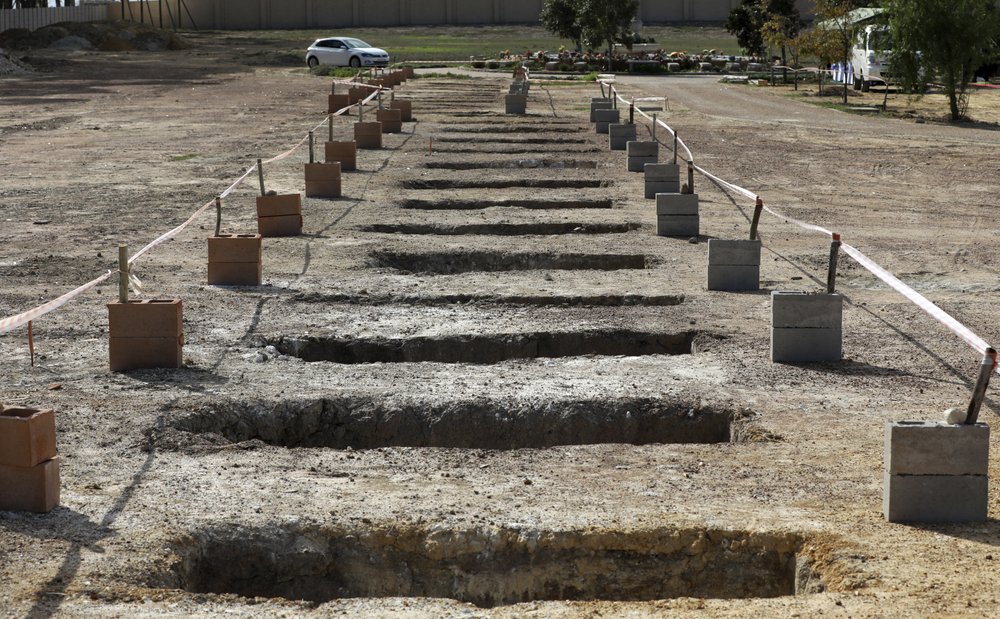
Cape Town emerges as virus hot spot for South Africa and continent

Cape Town has become the center of the COVID-19 outbreak in South Africa and one of Africa’s hot spots.
The popular tourist destination at the southern tip of Africa had more than 12,000 confirmed cases as of Thursday, representing 63% of South Africa’s 19,000 cases and about 10% of Africa’s 95,000 cases.
Gauteng province containing Johannesburg, South Africa’s largest city, and the capital, Pretoria, had been expected to be the country’s epicenter with its population density and poverty levels, but Cape Town defied predictions with high levels of community transmission.
“No model upfront predicted what we see in Western Cape (province),” Health Minister Zwelini Mkhize told journalists Thursday. “The explosion of cases in Western Cape is out of the expected range and it may be that we need to have additional interventions to try and contain those numbers.”
Cape Town’s mountains and beaches may have contributed to its high number of COVID-19 cases. With direct flights to several European capitals, it is believed that tourists not showing symptoms brought the virus and it began to spread undetected.
Cape Town is expected to reach its peak of cases around the end of June, while the rest of South Africa is expected to peak in August or September.
South Africa may see between 40,000 to 45,000 deaths by November, according to the Modelling and Simulation Hub, Africa, a group of scientists and academics advising the government.

By year’s end some 13 million of South Africa’s 57 million people could be infected, their study said.
While South Africa reportedly has adequate hospital beds it remains short of intensive care facilities. It has about 3,300 intensive care beds but predictions suggest more than 20,000 could be needed.
“It is not just a question of beds, it is trained staff and ventilators that will be needed and those are difficult to provide quickly,” said Juliet Pulliam, director of the South African Center for Epidemiological Modelling and Analysis, who contributed to the study. Cape Town could experience a shortage of ICU beds by the end of June, she warned.
Cape Town and Western Cape province are six to eight weeks ahead of the rest of South Africa in the outbreak, health experts said.
“The lessons we are learning now, we are sharing with the rest of the country,” said Dr. Nomafrench Mbombo, Western Cape’s top health officer.
Khayelitsha, a shantytown of nearly 500,000, is one of Cape Town’s hot spots. A field hospital is being constructed to increase the capacity of Khayelitsha District Hospital and should open by June 1, according to Doctors Without Borders.
One local problem is a delay in test results, in some cases up to eight to 10 days, said Dr. Claire Keene, medical coordinator for the Doctors Without Borders project. Another is that some healthcare workers have tested positive.

A second hot spot in the outbreak is the Tygerburg area near Cape Town International Airport.
Cape Town has suffered a massive economic slump from the tourism slump and lockdown restrictions, said Western Cape premier Alan Winde, estimating that 200,000 jobs have been lost and 1.2 million to 1.8 million people in the province are hungry.
Winde, in self-isolation after coming in contact with a TV cameraman who later died of COVID-19, wants restrictions relaxed to boost economic activity.
“We need to see the economy open up with the new normal operations, but without putting our health system under severe strain,” he told reporters. “We need to keep the curve as flat as possible.”
Meanwhile the rest of South Africa eagerly anticipates the relaxation of lockdown restrictions on June 1. Some government officials have said Johannesburg and other parts of the country will allow more people to return to work and resume the sale of alcohol and cigarettes.
Schools will resume classes, starting with students in grades 7 and 12, but many teachers and parents have expressed concern they will be exposed to the virus.






